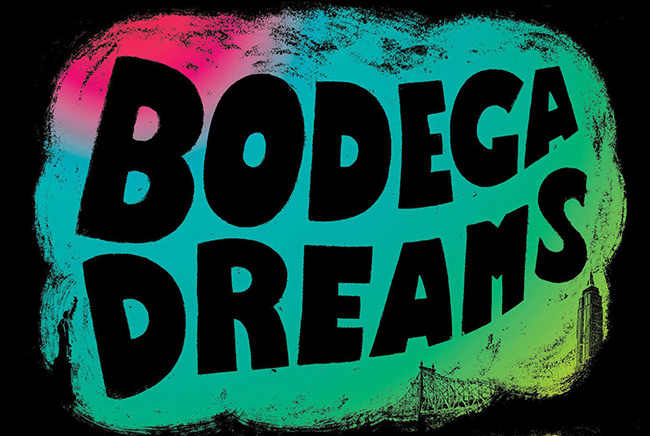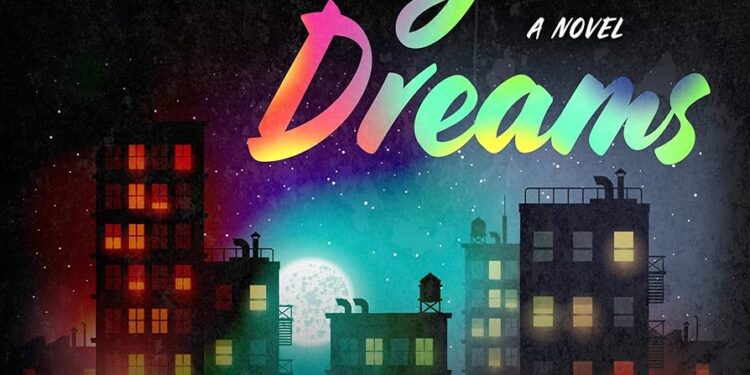Table of Contents
ToggleIntroduction
Bodega Dreams Summary By Ernesto Quiñonez Bodega Dreams, the debut novel by Ernesto Quiñonez, is a compelling and gritty narrative that explores the complexities of identity, ambition, and the immigrant experience in New York City. Set in the vibrant yet turbulent neighborhood of Spanish Harlem, the novel unfolds through the eyes of its narrator, Willie Bodega, a charismatic yet morally ambiguous figure who has both the respect and fear of those around him. As Quiñonez takes readers deep into the lives of his characters, he offers a nuanced portrayal of what it means to navigate the American Dream, especially for those coming from marginalized communities.
With a deep connection to the neighborhood and its cultural fabric, Bodega Dreams examines how personal dreams and aspirations can sometimes blur the lines between right and wrong. The story is a powerful commentary on the challenges faced by Latinos in the United States, particularly in relation to poverty, racial tension, and the complex layers of what it means to be an “American.” The novel is also rich in its exploration of familial expectations, loyalty, and the cost of success in a world where systemic inequalities shape one’s choices.
Quiñonez’s writing is sharp, vivid, and emotionally resonant, capturing both the struggles and the resilience of his characters. By blending crime, social commentary, and introspective moments, Bodega Dreams reveals a multifaceted view of a community caught between two worlds: one where survival often means compromising values and another where dreams of betterment might just require that one sacrifice everything.
Plot Summary of Bodega Dreams
1. The World of Willie Bodega
The novel opens with the story of Willie Bodega, a successful bodega owner and a drug lord in Spanish Harlem. Despite his illicit activities, Bodega is portrayed as a man who has managed to secure a position of power and respect within his community. He is the quintessential self-made man, rising from poverty and hardship to control the streets of the neighborhood. While his business dealings are questionable, Bodega sees himself as a figure who is simply trying to survive and provide opportunities for others in a system that has marginalized his people.
Bodega is a character who represents both the promise and the cost of the American Dream. He believes in upward mobility but has come to understand that such aspirations often require morally compromising decisions. Bodega’s charm, intelligence, and street smarts allow him to manipulate both the community and the political structures around him. Yet, his rise to power is not without its inner turmoil, as he grapples with his conscience and the toll his actions take on those around him.
2. The Narrator: Chino
The novel is narrated by Chino, a young Puerto Rican man who becomes deeply entangled in Bodega’s world. Chino is caught between his desire to escape the harsh realities of his life in Spanish Harlem and his loyalty to his friends and family. Chino’s family represents a more traditional Puerto Rican experience, and his relationship with his father is strained by both generational differences and Chino’s inner conflict regarding his future.
Chino serves as a lens through which readers view the complexities of the immigrant experience in America. He is well-meaning, intelligent, and sensitive, but he feels trapped by his environment. As he becomes involved in Bodega’s business, Chino is faced with choices that test his morals and question his understanding of right and wrong. Throughout the novel, Chino’s journey serves as a parallel to the community’s struggle to reconcile aspirations for a better life with the harsh realities they face in a system that often seems designed to keep them down.

3. The Mysterious and Charismatic Bodega
Bodega’s character is both magnetic and enigmatic. He appears to be a figure who has transcended the limitations of his environment. His intelligence and ambition have made him a local hero in Spanish Harlem, but his methods—particularly his involvement in the drug trade—are anything but heroic. Despite his criminal activities, Bodega sees himself as a benefactor to the neighborhood, providing jobs and financial support to the local community. He believes that by wielding power, he can uplift his people, even if it means resorting to illegal means.
Bodega’s relationship with Chino evolves over the course of the novel, as Chino becomes more involved in his world. Chino, who initially admires Bodega for his success, begins to realize that Bodega’s actions are driven by personal ambition and that his dreams come at a cost. The tension between Chino’s idealism and Bodega’s pragmatism creates a dynamic that drives much of the novel’s conflict.
4. The American Dream and Moral Ambiguity
One of the central themes of Bodega Dreams is the exploration of the American Dream. For Bodega, the dream is not about freedom or equality; instead, it is about power, success, and material wealth. His interpretation of the American Dream is deeply cynical, recognizing that in a system where access to opportunities is limited for people of color, achieving success often requires bending the rules. This is a sentiment shared by many of the characters in the novel, who struggle to reconcile their desire for a better life with the means required to attain it.
The novel questions whether the American Dream is truly achievable for everyone, especially for those who come from disadvantaged backgrounds. It explores how economic and social inequalities often force individuals to make morally complex decisions in order to survive. Through Bodega’s story, Quiñonez illustrates how the pursuit of success can sometimes lead individuals to compromise their values, and how dreams can sometimes be built on a foundation of exploitation and violence.
Read more
5. Love, Loyalty, and Betrayal
At its core, Bodega Dreams is also a story about loyalty, love, and betrayal. Chino’s relationships with his family, his friends, and his love interest, Blanca, are tested throughout the novel. His relationship with Blanca, in particular, becomes a central subplot, as their love is complicated by Chino’s growing involvement with Bodega and the pressures that come with it. Blanca is an idealist who dreams of a life outside the constraints of Spanish Harlem, but her love for Chino complicates her ability to fully escape.
Loyalty to one’s community and to one’s family is another key theme in the novel. Chino must navigate the expectations of his family while also reconciling his growing admiration and involvement with Bodega. The novel illustrates the fine line between loyalty to one’s roots and the desire to move forward and escape the limitations of one’s circumstances. It also explores the betrayal that can result from choices made in pursuit of personal gain, highlighting how betrayal is often a byproduct of the very same systems that dictate the characters’ actions.
6. The Political and Social Context of the Novel
Set in the 1980s, Bodega Dreams is also a reflection of the political and social context of the time, particularly regarding the struggles faced by Latino communities in New York City. The novel touches on issues of systemic racism, gentrification, and the lack of economic opportunities for people of color. Quiñonez captures the social tension and the harsh realities of life in Spanish Harlem, depicting how the neighborhood is both a place of cultural richness and a battleground for survival.
The novel also addresses the impact of the drug trade on the community, portraying how the lure of fast money and power can pull individuals into a cycle of violence and crime. Quiñonez’s portrayal of the neighborhood is not romanticized but rather grounded in the struggles of the people who inhabit it. The characters’ actions are shaped by the larger political and economic forces that govern their lives, and the novel reflects on how these forces affect the choices that individuals make.
Themes in Bodega Dreams
1. The American Dream
The novel critiques the concept of the American Dream, particularly for marginalized communities. It suggests that success in America is often reserved for those who have the means to navigate a system that disproportionately benefits the wealthy and the white. Bodega’s pursuit of the American Dream is marked by moral ambiguity, as he uses criminal enterprises to achieve his version of success. The novel raises questions about whether the American Dream is achievable for everyone, and whether the price of achieving it is worth the cost.
2. Identity and Belonging
Bodega Dreams explores the theme of identity, particularly in the context of being a Latino in America. Chino’s struggle to reconcile his Puerto Rican heritage with his desire to escape the confines of Spanish Harlem speaks to the larger issue of assimilation and cultural identity. The novel reflects on what it means to belong in a society that often marginalizes individuals based on their race and ethnicity.
Read more
3. Power and Corruption
The novel examines the corrupting influence of power and the lengths to which individuals will go to maintain it. Bodega’s rise to power is marked by a willingness to sacrifice others for personal gain, and his journey reflects the moral compromises that many people must make in a system that rewards ruthlessness and manipulation. The novel questions whether true power can ever be achieved without corruption.
4. Loyalty and Betrayal
Loyalty is a central theme in the novel, particularly in the context of family, friendship, and love. Chino’s relationships are tested by his growing involvement with Bodega, and the novel explores how loyalty can both motivate and complicate personal choices. The theme of betrayal is also woven throughout the story, as characters are forced to make decisions that ultimately betray their values and relationships.

5. The Cycle of Poverty and Crime
Bodega Dreams also explores the cycle of poverty and crime that often entraps individuals in disadvantaged neighborhoods. Through Bodega’s story, Quiñonez illustrates how limited opportunities can lead individuals to take desperate measures, including turning to the drug trade. The novel sheds light on the social and economic forces that perpetuate this cycle and the difficulty of escaping it.
Read more
(FAQ)
1. What is Bodega Dreams about?
Bodega Dreams is about the life of Willie Bodega, a drug lord and businessman in Spanish Harlem, and the moral complexities of his rise to power. The novel explores themes of identity, loyalty, ambition, and the pursuit of the American Dream, as seen through the eyes of Chino, a young Puerto Rican man who becomes involved in Bodega’s world.
2. Is Bodega Dreams a critique of the American Dream?
Yes, the novel critiques the American Dream, particularly for marginalized communities. It suggests that the dream is often unattainable for people of color, and that the pursuit of success may require compromising one’s morals. The characters in the novel grapple with this tension between personal ambition and ethical choices.
3. What role does family play in the novel?
Family plays a significant role in Bodega Dreams, particularly in the relationships between Chino and his family members. The theme of loyalty to family is explored, and the novel examines how family dynamics shape the characters’ choices and identities. At the same time, the characters’ loyalty to their community is also tested.
4. What is the significance of Bodega as a character?
Bodega is a complex character who represents both the power of self-made success and the moral compromises that come with it. He embodies the contradictions of the American Dream, as he uses crime to build his empire while attempting to improve his community. His character serves as a focal point for the novel’s exploration of power, ambition, and the costs of success.
5. What is the social context of Bodega Dreams?
The novel is set against the backdrop of Spanish Harlem in the 1980s, a time of economic struggle, racial tension, and the rise of the drug trade in New York City. It explores themes of systemic racism, poverty, and gentrification, reflecting the social and political challenges faced by the Latino community in the United States.
Read more













